Anti-Poaching in Africa
Part I.
CARVINGS IN DUST
Images and text by Martin Buzora
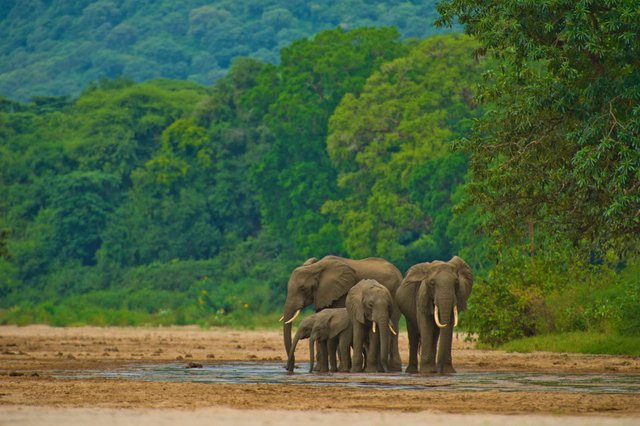
“Nature’s great master-peece, an Elephant,
The onely harmlesse great thing; the giant
Of beasts…
And foe to none, suspects no enemies.”
-John Donne, 1612
I awoke to my tent shaking, and the sound of my friend Wanjiku’s calls slowly fading in. Her soothing voice, which could subdue a riot and seems to have been tailor-made for lullabies and the reading of fairy tales, was now telling a different story. Distress had sharpened her beautiful Kenyan accent and before I was even fully conscious, my heart began to race. “Wake up Martin! Wake up! An elephant has been shot!” I jolted from my bed and instinctively reached for my camera before I even had my first coherent thought of the day.
Batteries, check.
I’m still half dreaming.
Memory cards, check.
Remember to breathe.
Microphone cable, check.
By the time I zipped open my military canvas tent seven-point-eight seconds later, the hazy fog of sleep began to clear and I was ready for action. A cool, pink dawn and Wanjiku’s beautiful face awaited me outside. She was visibly in distress. I took a deep breath and now that I was fully conscious, I remembered who and where I was: a documentary filmmaker living on Lewa Wildlife Conservancy in Northern Kenya, East Africa.
As we rushed over to a nearby compound for our rendezvous point, I glimpsed down and noticed my black Converse shoes, wondering when and how they made it onto my feet. When we reached our dusty old Land Cruiser, a group of familiar faces awaited us. Among them was Dr. Matthew Mutinda our head vet, his trusted sidekick Mr. Sumbiri and a few members of the conservancy’s security team lead by Mr. Chelimo, armed with G3 automatic rifles. There was a quiet urgency in the air, and nobody spoke.
The details were not yet clear. All I knew was that our radio room received a call in the middle of the night about an elephant that had been shot down somewhere outside the protective haven of the conservancy at a settlement called Leparua, and our in-house vet Dr. Mutinda was rushing to the scene at first light to investigate. None of us knew the details of what really waited for us.
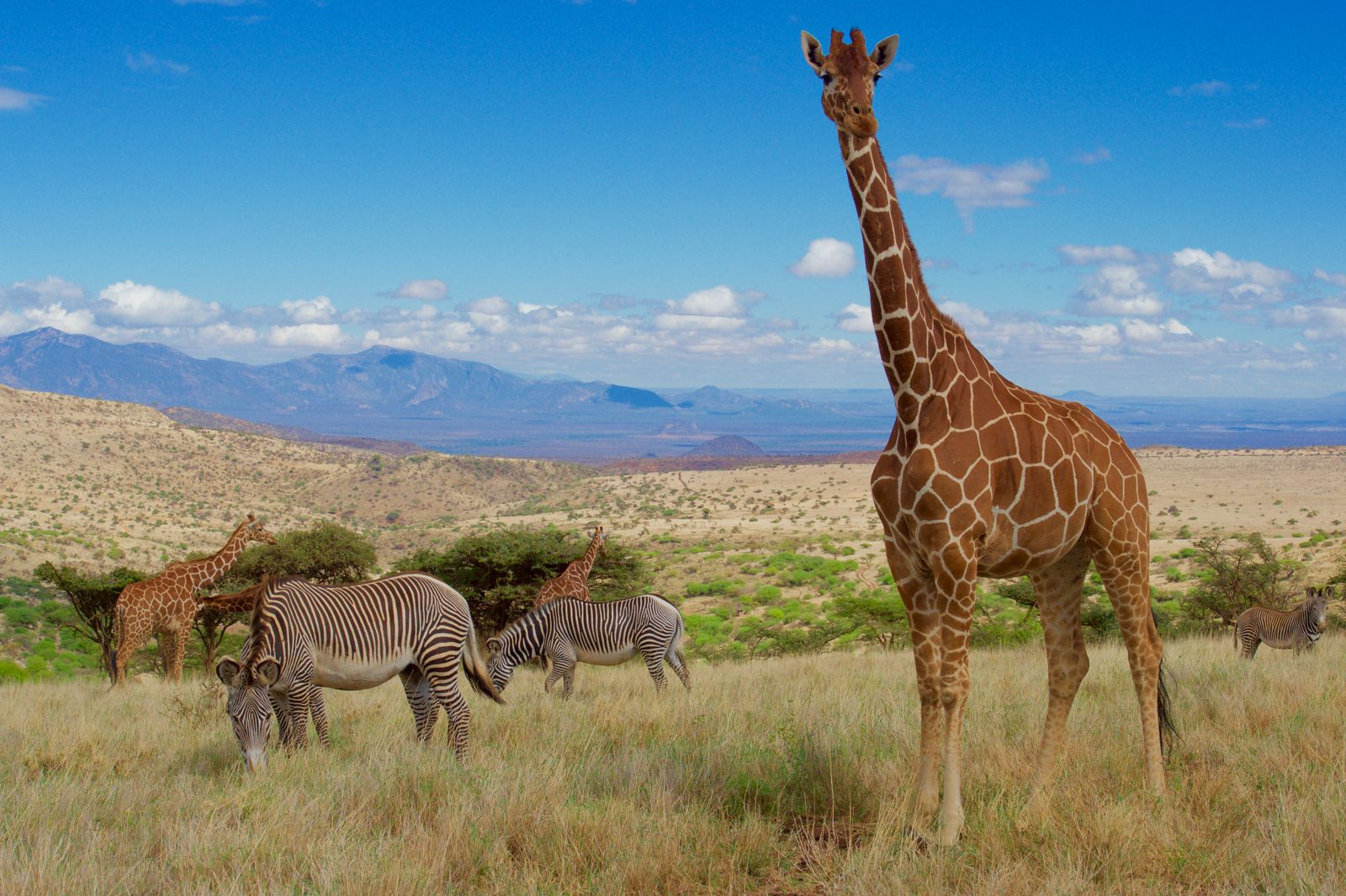
I sat in the back of the cruiser as it took off, zigzagging up and down mountainous roads, crossing rocky riverbeds that were made even bumpier by Sumbiri’s hasty driving. Troops of baboons scattered as we came around corners, and Greater Kudus scampered up impossibly steep rock faces as our dusty vehicle stormed past in a boisterous trail of dust. In what must have seemed like an extravagant display of acrobatics, I was gripping an overhead metal bar with one hand and balancing my film camera in the other, trying hard not to tumble off the side. The back of the vehicle was filled with medical kits, tranquilizer guns and giant jugs of water. I stuck my feet for extra support between a mound of heavy ropes and a medical cooler which contained various vials, sedatives and other chemicals. To my right sat two armed guards holding their rifles, and to my left was Dr. Mutinda. The mood was somber but calm and I made a conscious attempt to mirror my own demeanour with everyone else’s in order to hide my anxiety and fear.
A big reason why I became a filmmaker was to experience things I’ve never been exposed to before. A necessary skill of my trade is to become an astute observer at all times, to be perceptive and in tune with the energy of those around you and to become a student of human behaviour. Mastery of this means invisibility, which is an invaluable skill when shooting documentaries. Or anything, for that matter. Without this, one cannot capture unguarded moments of truth.
We exited the Lewa security gates and Mutinda’s ageless, handsome face was staring off into the distance as we drove past banana plantations and shambas. He looked dignified beyond measure, and his professionalism was absolute. I had spent countless hours with him in the field with wild beasts of all kinds, and yet if I’ve ever observed a single spec of blemish on his finely pressed clothing or shoes, I certainly can’t remember it at the moment. It comes from that unique blend of Kenyan dignity, humility and inner strength which I have yet to come across anywhere else in the world. Mutinda is a man of science, logic and critical thinking. I’ve never seen him allow his feelings to distract him from the correct course of action. He is the go-to veterinarian in an inconceivably large area of Northern Kenya, and when you carry that amount of responsibility, I suppose there is not much room for distractions. I love and admire him for his qualities, and always wished deeply for him to consider me his friend as well. If you’re ever lucky enough to share one of Matthew’s hearty, iconic laughs with him, you will know what it’s like to be the centre of the world, if only for a moment. But today that laugh was as hidden and far away as the snowy, jagged peaks of Mount Kenya, cloaked in their morning clouds behind us.
As we left the Lewa hills and entered the plains, I could feel the tension building, and knew we were getting close to wherever we were headed. We had entered Maasai territory, passing goat herders and ladies carrying water from nearby streams. The day was heating up fast. A few hour ride later we finally arrived at a heavily wooded area next to a Boma where children rushed out to greet us and two truckloads of KWS government anti-poaching troops waited for us under the shade of a great big Acacia tree. There must have been over twenty guys present, decked out in full kit. Are we at war? I wondered…
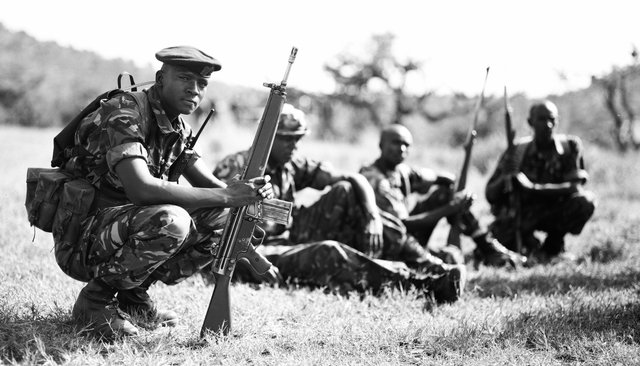
To them, this was just another day on the job. To me, it was an experience that changed me as a person forever.
I jumped off the truck before Matthew so I could film him stepping on the ground. I made no conscious decision to tell the story of my film through his point of view - it came naturally as a result of my admiration for him. He stepped off the vehicle and shook some hands. Any time people greet Dr. Mutinda, I am convinced he’s intimately tied with every human being in the nation of Kenya.
Greetings and formalities quickly over with, some KWS troops motioned for us to follow them into the bush. I never realized how eerily silent two-dozen people could be. My heart rate increased. We moved through thick bush, pushing past thorny branches and leaves. After a short walk we came upon a clearing. The ground here became rough and uneven with strange grooves carved out in all directions, like the messy makings of some new garden. I didn’t think much of it until I saw the KWS captain pointing at the churned up lines in the dirt speaking swift Swahili. I caught the word “Ndovu” and a chill ran through me.
This was no garden.
It was the place where our elephant was shot. This is where it fell, churning up the ground with its olympian legs as it tried desperately to escape its multitude of misfortunes: the most obvious one of being in the wrong place at the wrong time and getting shot; the even greater misfortune of standing out by being a crown jewel of evolution with unmatched magnificence in the animal kingdom; the further added misfortune of having been born with a pair of highly sought-after modified teeth called tusks; and its greatest misfortune of all: to share an epoch with the most dangerous creature to have ever evolved on this planet - a ruthless great ape that named itself Homo Sapiens (“wise man”) yet has swept across the world like a disease wiping everything in its path, including itself. The only species who is single-handedly responsible for the most rapid and comprehensive extinction of life in the 4.5 billion year history of our planet, the 6th exinction of the Anthropocene. An unconscionable, vain, territorial, megalomaniacal animal obsessed with its own desires. Our appetites for wealth and material possessions are insatiable, no matter the cost. Based on this, I hereby propose a new latin name for our species, one that wasn’t automatically granted through narcissism, but one which was earned through action: Homo Insanus.
A few moments later we were joined in this garden of doom by local warriors from nearby families, all wearing traditional beadwork and trademark garments. A few elders also showed up to oversee the commotion. Looking around at all the faces, it struck me that even though everyone present was from different walks of life, for the time being our devastation unified us all. How can we feel so much compassion on an individual level, yet be so disturbingly destructive as a species? This remains one of the great questions of my life.
We followed the direction of the strange carvings in the dust, reading them like some tragic tale of pain, wondering what kind of ending it held for us. The path narrowed before our feet, and we stepped out from the bushes into another clearing. Matthew and a few members of the anti-poaching team were ahead of me and it was through their camouflaged outfits and rifles that I caught my first glimpses of the animal.
What was revealed to me when I stepped out was an image that will never be blurred by the passing of time: one of a broken, dying female elephant. She was an enormous creature, like some alien being from an ancient time and place, writhing on the ground with her trunk and limbs flailing, puffing up clouds of dust. We learned from the locals that she was shot 24 hours prior to our arrival. When the gunshots were heard, it took someone hours of walking to the radio station at the conservancy gates to report the incident. It is said that pain makes time crawl, and this animal had been suffering here for an entire day. That’s twenty-four hours, one thousand four-hundred and fourty minutes, and eighty-six thousand four-hundred seconds of pure agony.
But despite all of that, she was still holding on. I could never conceive of a living, sentient being capable of enduring so much pain.
Everyone gathered in a circle about 20 feet from her. Even in her fallen state, she wielded enormous power. A single thrust of a limb could swipe out several of us if we wandered too close. I stared into her eyes, and a non-human person stared back at me. Though there was nothing I could do for her, I wished so bad that I could at least provide an explanation to her for why everything was happening. But I couldn’t. I just stood there filming. My only ability in life is to document things, and telling her story was my feeble attempt at somehow countering the evil that had befallen her. Her pupils dilated and her trunk curled in all directions like the arm of a drowning victim, desperate to find anything to hold on to. She was gasping for air and was visibly terrified by our sudden presence. To her, we were the aliens, and it must have been overwhelming. Her tusks were still intact, and the KWS were investigating the locals to find out whether this was a failed poaching attempt to cut off her tusks and sell them on the illegal ivory market ultimately bound for Asia, or a case of human-wildlife conflict. Meanwhile, Matthew calmly walked around the fallen elephant, methodically observing her injuries. I watched an old man with a makeshift cane walk up to Matthew and tell him something. He stood there and glimpsed back towards the bushes where we came from. I knew something was up, and walked up to see what this was all about. Matthew told me that the elephant had a young baby who was left unprotected after her mother fell, and was snatched by hyenas at some point through the night. The heartbreak of the notion that even with her fatal injuries she managed to outlive her baby was almost too much to bear, and we turned our attention back to the mother.
There was a clear entry wound with swelling where a bullet had entered. After a brief discussion with the team, Matthew confirmed what everyone feared the most: the bullets had lodged too deep and the damage on her body was too great for any kind of viable treatment. In order to treat an animal one must tranquilize it first, and to tranquilize her in this state would have added to an even slower, cruel death.
The inescapable decision was made to end her suffering quickly.
I spent a week with Matthew once studying a wild herd of incredibly rare Grévy’s zebras in a remote part of Northern Kenya called the Horr Valley. Over firelight one night he told me a story from his childhood when all the cows in his village were dying of an unknown disease. In Maasai culture, there is no possession more precious than a cow. Cattle are the source of all wealth, food and ultimately life itself. The helplessness of that devastating experience left such a deep psychological mark on that little Maasai boy that he made the decision right then and there to dedicate his life to saving animals. He vowed that no creature would ever die of an ailment again under his watch, and became a vet. Many years have passed since the dying of his family’s cows, but I wondered if beneath his methodical, clinical approach that boy still lived inside Dr. Mutinda’s heart. An experience like this would move even the strongest of us, and I wondered how he felt about it deep inside.
Some of us from the conservancy walked away from the scene behind some bushes to give the security team some privacy. It was a dark and surreal thing, waiting for a gunshot that was already echoing in my head before it even happened. The tension was so thick you could cut it with a knife.
But the gunshot never came.
A minute or two had passed and a slight commotion was heard, so we decided to head back out. Immediately, something about the scene felt different. It had a cold tranquility, like the sea after a great and violent storm. The elephant was still. Her trunk laid sprawled out on the ground, motionless. She had passed on her own accord. Ultimately it was a heart attack that took her. The terror of it all was indeed too great to bear, and she surrendered. The distorted, deafening, pounding energy of her pain had now dissipated, leaving the scene with a sense of great emptiness.
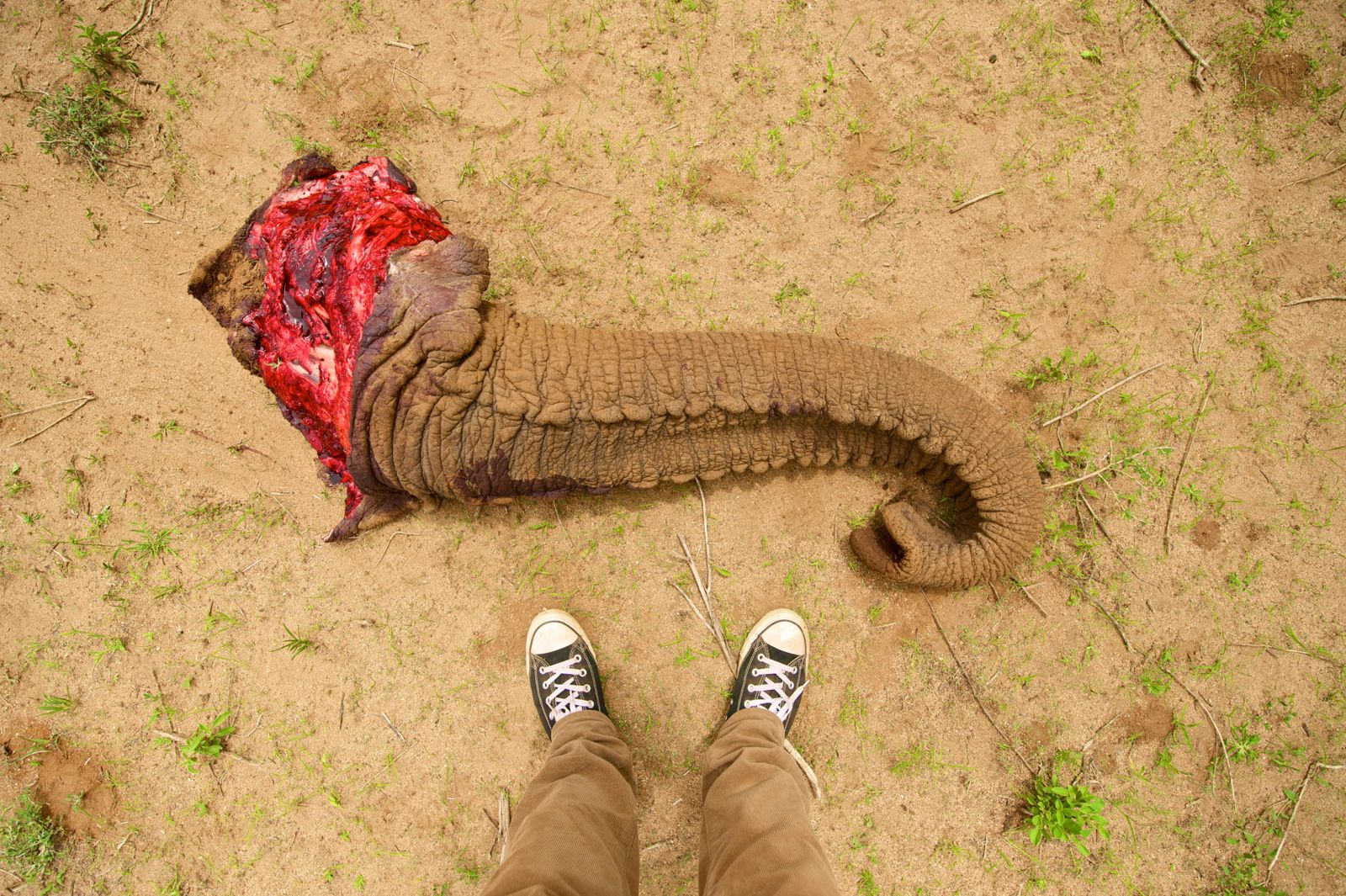
The rescue mission has now turned to an autopsy. Straps from a lorry were tied around her tree trunk legs and a truck was used to flip the mountain-sized carcass. Matthew and team gathered around as Sumbiri, an expert butcher, began to methodically slice through inches of warm leather in order to make way for the finer surgical work of Dr. Mutinda. The musky stench of death boiled in the air and attracted feral dogs and curious local children to join in on the morbid spectacle. The skeletal dogs circled the scene and managed to sneak away with shreds of flesh from time to time. The children watched curiously as those dedicated, incredible men expertly executed the grim task, which they must have done so many times before. After what seemed like hours of work, Mutinda finally extracted a brass-coloured shiny bullet from a mountain of flesh, which was sent back to a crime lab in Nairobi for a ballistics investigation. Most importantly, the KWS removed the tusks and brought them to a high-security government safe in Nairobi where seized illegal ivory was stockpiled. They were later set ablaze in a massively publicized ivory burn event, along with over 100 tonnes of illegal ivory. The event was covered by major media outlets around the world, meant as a symbolic gesture to send a message to the world that ivory is worthless and the only place it belongs is on an elephant.
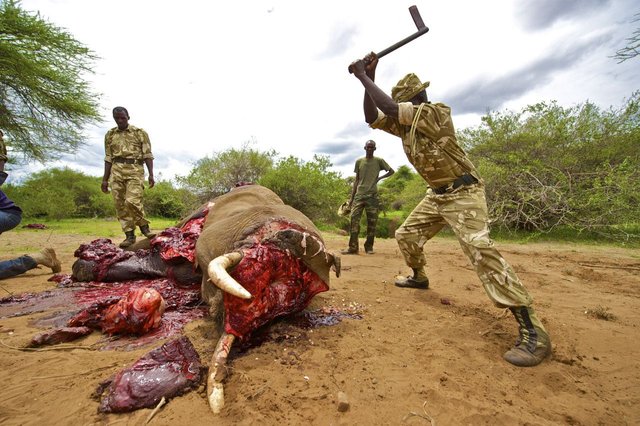
It was late afternoon by the time we headed back to Lewa. My burnt skin was inflamed from the sun, and I stared out from a Land Rover window as we entered Lewa territory again. The brown hills and signs of human activity immediately turned to lush, untouched greenery as soon as we crossed the fence. With the hellish experience of the day over, we had finally returned to paradise, where nature was protected and all creatures were allowed to live in peace.
My camp inside the conservancy was located inside a Yellow Fever forest next to the Lewa Swamps. The evening air was warm on my sun-kissed face, and the orange glow of the vehicle headlights illuminated the golden grass as we drove through the heart of East Africa. A great herd of elephants were walking back to the grassy plains from their evening drink at the swamp. My faithful driver and companion Martin Maina slowed to a full stop, and turned off the engine.
The giants were silhouetted against a dim, purple sky. The sound of cicadas and crickets filled the air. A few stars began to slowly twinkle and I could smell our caretaker Carol's cooking back at camp. Distant laughter echoed through the marsh, and in that moment, life anywhere else in the world seemed utterly pointless. The contrast between the elephant outside the protection of the conservancy and these calm animals gently grazing away was difficult to comprehend. The herd was gentle and quiet. Their demeanour was one of total confidence and absolute freedom. Were it not for the occasional low rumble or the sound of tearing grass as they were feeding, you could close your eyes and walk right past them without any knowledge of their existence.
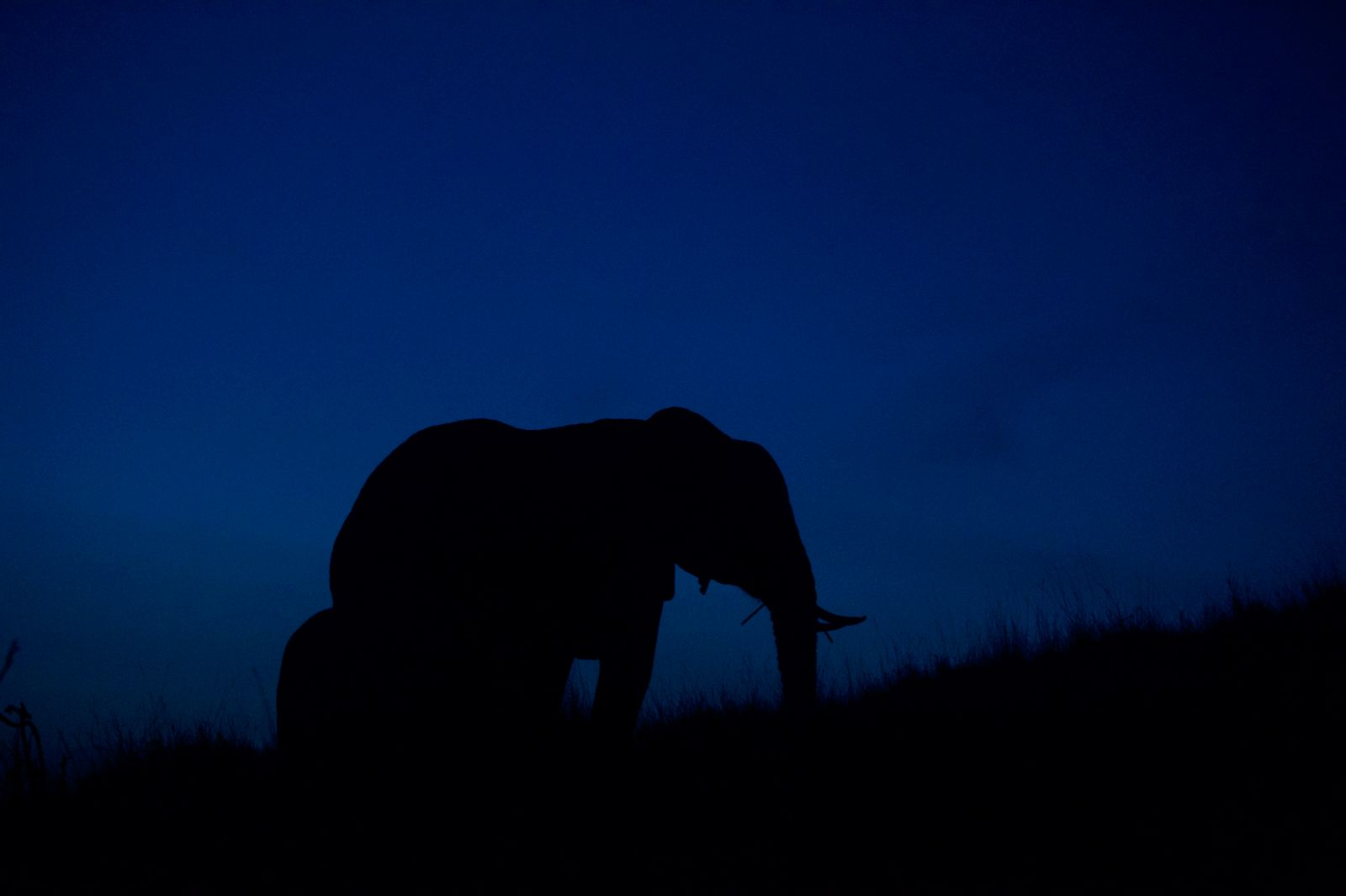
If there is any magic in the world, it can surely be found in one of these purple evenings. I believe that one of the only few true divinities in the world can be found in nature, and the million creatures we share this tiny planet with who all came from the same origins we did. Being around them, inside Lewa, I feel humbled knowing I am not any more important than them. It’s one of the last places on Earth where humans and animals can live as equals. I thought about deep time, and realized they were more than fellow animals; they were my family. Us and those elephants share distant grandparents. You could trace a linear line from you, your grandparents, great grandparents, their parents and their parents and when your list was a hundred kilometres long, you would end up at a creature, perhaps some rodent-like thing that gave birth to offspring who adapted to different environments, and eventually ended up as humans and elephants. And though we have stopped speaking each others’ languages long ago, if we pause for a moment and allow ourselves to feel their ancient presence, a profound connection can still be felt. Among these magnificent creatures on Lewa, it is impossible to feel alone.
We headed back to camp. I did not have dinner that night, and went straight to my tent. I lied there in the dark among the orchestra of animal sounds, and I fell asleep with the looping image of an elephant leg carving lines in the ground.
-Martin Buzora
At the sight of your first photo of the animals enjoyed. How beautiful they are! And seeing the next photo of the dead elephant was horrified! How can a man be so cruel?
Hi. I am @greetbot - a bot that uses AI to look for newbies who write good content!
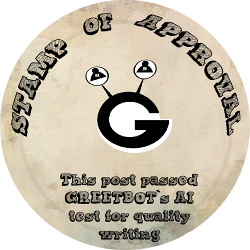
Your post was approved by me. As reward it will be resteemed by a resteeming service.
Resteemed by @resteembot! Good Luck!
The resteem was paid by @greetbot
Curious?
The @resteembot's introduction post
Get more from @resteembot with the #resteembotsentme initiative
Check out the great posts I already resteemed.